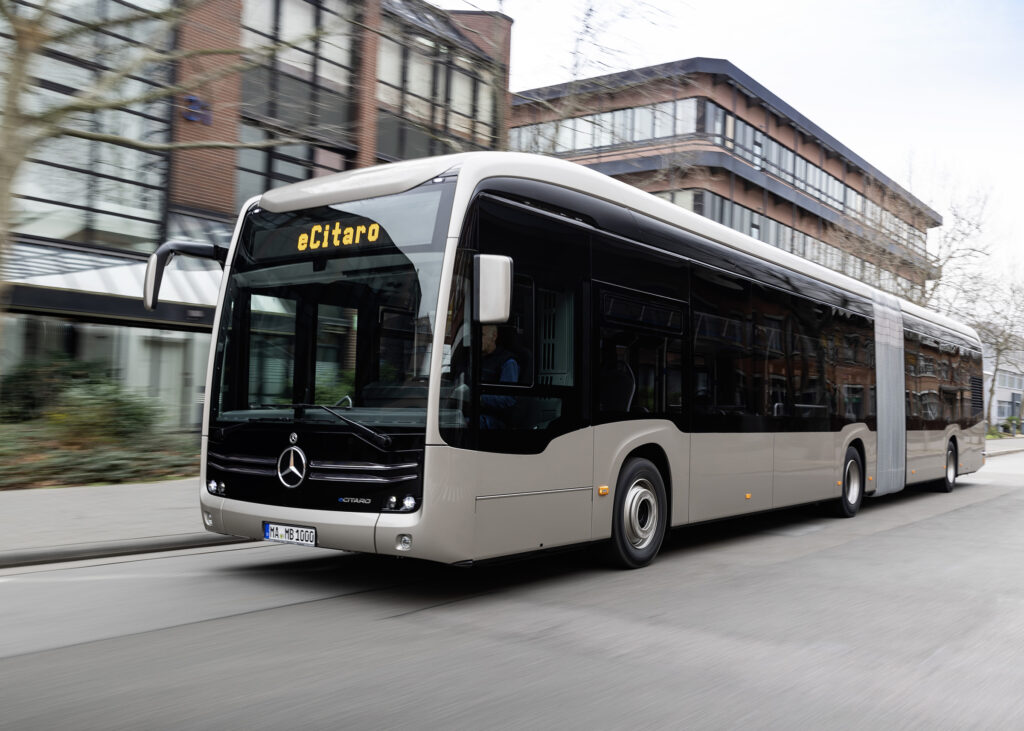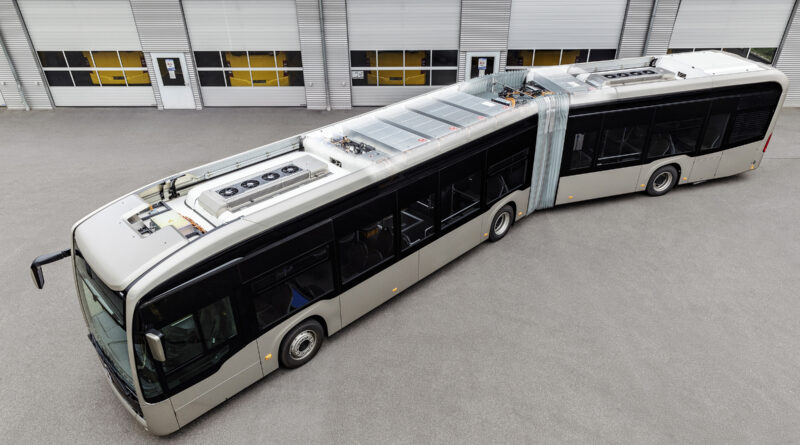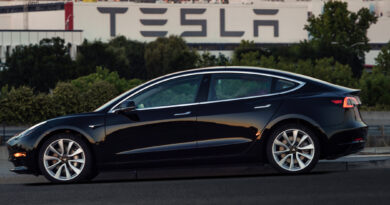First EV with solid state batteries hits the market (it’s big!)
Mercedes-Benz has revealed the world’s first production electric vehicle powered by solid-state batteries.
The updated Mercedes-Benz eCitaro G articulated bus (or bendy bus) available in Europe now has the option of solid-state batteries – or lithium-polymer batteries – which have a have a higher energy density than lithium-ion batteries currently favoured by EVs.
The new EV bus gives a tantalising taste of the advancements in battery tech set to flow down to electric cars over coming years.
The eCitaro G uses seven battery packs each holding 63kWh of electricity, for a total of 441kWh.
Mercedes-Benz says the solid-state batteries have an energy density 25 percent better than the soon-to-arrive updated lithium-ion batteries, which have also undergone a radical improvement in efficiency.
That potentially means weight savings of at least 25 percent or a move to smaller battery packs for more efficient vehicle packaging.
Solid state batteries also don’t require cooling, one of the biggest challenges with regular lithium-ion batteries.
The solid-state batteries are also produced without cobalt, one of the most expensive components of modern batteries and an element that is difficult to extract from the earth’s crust.
Choice of lithium-ion or solid-state
Mercedes-Benz will also offer the eCitaro G with lithium-ion batteries (specifically those with a nickel-manganese-cobalt construction), albeit ones significantly upgraded from what was previously available in the all-electric bus.
The new NMC battery pack holds about 37 percent more electricity – for 393kWh in total – with each of the 12 battery packs now holding 33kWh, up from 24kWh in the previous model that went on sale in 2018.
The move to offer the split battery strategy is to cater for potentially different requirements and budgets, the solid-state batteries more expensive.
Mercedes-Benz says the solid-state batteries can’t be charged as fast as the NMC lithium-ion ones, which can be fully charged in a matter of hours.

Offsetting the higher cost, the solid-state batteries are claimed to suffer less degradation over time.
Even when used in a commercial vehicle such as a bus, Mercedes-Benz offers a 10-year guarantee covering battery throughput of 280 mega-watt hours. That’s the equivalent of 635 charges from completely flat to full, or one full charge every 5.8 days across 10 years.
Mercedes-Benz claims the 441kWh solid-state battery pack will provide the eCitaro G with a minimum of 190km, as a worst-case scenario (heavy use on a hot day). That compares with 170km for the 396kWh lithium-ion battery pack in the same conditions (average range under regular conditions is estimated at 280km).
The solid-state battery race
The move to offer solid-state batteries in a production electric vehicle is significant for Mercedes-Benz and parent company Daimler, which has so far been outdone by newcomer Tesla in the rapid shift towards electric vehicles.
As the most expensive and complex component of an electric vehicle, batteries are part of the tech race being waged by car makers and major battery suppliers around the world.
Many car makers and battery suppliers have suggested solid-state batteries are unlikely to be available in electric cars until 2025 or later.
Reasons cited for the long wait include being able to manufacture them in high volumes and ensuring they are safe to produce and use.
The implementation of solid-state batteries in a commercial vehicle also provides Mercedes-Benz with lessons on the new tech before it inevitably flows down to passenger cars.
When solid-state batteries finally do make it into electric cars and electric SUVs, expect big improvements compared with the current lithium-ion units.





The numbers they are quoting are getting me excited. If they pan out as stated it will make a massive difference to EV viability in Australia with our large distances. I am watching this space with great interest.